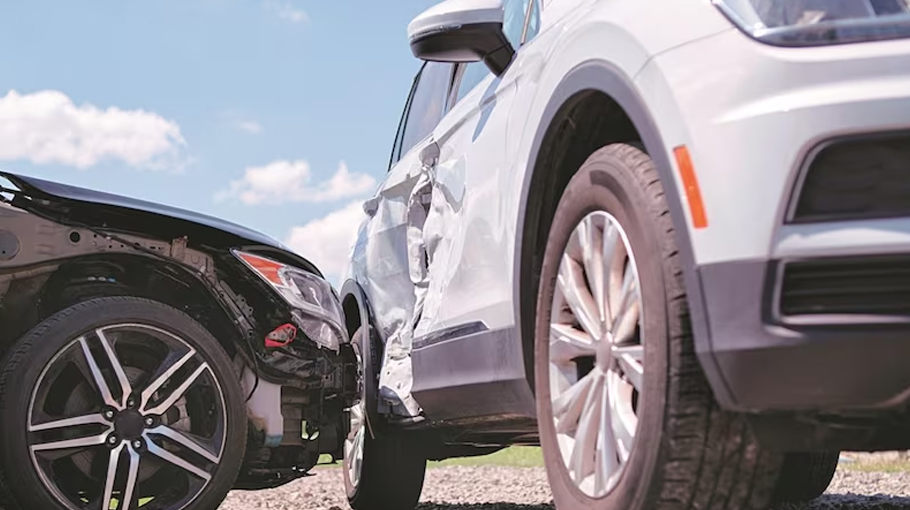Road crashes are not “accidents” —they are preventable tragedies

Picture yourself getting caught in a rainstorm. This unpleasant occurrence considered “bad luck,” or an “accident,” is an unfortunate event that anyone can experience on any given day. It’s beyond
our control.
Yet when we use the word “accident” to describe events such as traffic crashes, we are using the wrong terminology—because preventing road crashes is within our control.
According to World Health Organization (WHO) Global Status Report on Road Safety 2028 – Bangladesh Factsheet, today, collisions in Bangladesh kill nearly 25,000 people each year. Unlike bad weather, this is not an inevitability or an “accident.” It’s an overlooked public health crisis.
According to the Bangladesh Health and Injury Survey (BHIS) 2016, conducted by the Ministry of Health and Family Welfare, Directorate General of Health Services (DGHS) and Center for Injury Prevention and Research Bangladesh (CIPRB). BHIS 2016 is the country’s most recent nationwide household injury survey that found injuries resulting from road crashes are the second leading cause of permanent disability in the country, with an estimated 220 people permanently disabled and severely burdened every day. WHO has mentioned the information under its Road Traffic Injuries that worldwide, road crashes remain the leading cause of death among people aged 5-29 years, with an estimated 1.3 million people killed and 20 to 50 million more people seriously injured each year.
From the way roads are designed and how regulations are enforced to the national safety standards for vehicles, the transport system must be designed with all road users in mind. With the right interventions, the majority of these crashes can be avoided.
The WHO has identified risk factors that can be managed to reduce road traffic death and disability, and the simple, cost-effective solutions to prevent them. These include: establishing speed limit regulations to determine maximum speeds based on each road’s use; regulations requiring proper motorcycle helmet use and enforcement of those regulations; vehicle safety standards that ensure people are buying safe cars; and mass media campaigns paired with enforcement of traffic laws to change road user behaviors.
Speeding, for example, is a major factor in crashes and raises both the likelihood of a crash and the severity of its consequences. Yet just a 5% reduction in average speed can result in a 30% reduction in the number of fatal crashes. Establishing speed limits in alignment with road usage is critical to ensuring safe transport for all. WHO initiated a global campaign in 2021 with the slogan ‘streets for life: why #love30?’ that recommends a limit of 30 km/h where there is a higher risk for pedestrians, cyclists or other vulnerable road users.
Currently, Bangladesh lacks a policy standardizing how speed limits are set. One hopeful sign is that the Accident Research Institute at the Bangladesh University of Engineering and Technology is currently drafting a national speeding guideline. By adopting this guideline, the government can pave the way to reducing fatal road crashes.
Safe and standardized use of helmets is another lifesaving intervention that is particularly relevant to Bangladesh, where motorcycle use is rapidly rising. According to the 2022-23 annual report of the Bangladesh Road Transport Authority, motorcycles account for about 72% of motorized transport, but speeding and unsafe helmet use put motorcyclists at undue risk.
For instance, we can refer to a manual titled ‘Helmets – a road safety manual for decision-makers and practitioners’, jointly published by the WHO, FIA Foundation, Global Road Safety Partnership (GRSP), and World Bank Group. This manual stated that wearing a quality-standard helmet correctly can reduce fatal injuries of powered two- and three-wheeler drivers by 28-64%, and the risk of brain injury by up to 74%. Enforcing standard helmet guidelines as outlined by the Bangladesh Standards and Testing Institute in 2022 has the potential to save lives.
Everyone deserves safe streets. Just as we don’t refer to plane crashes as plane “accidents,” we shouldn’t describe road traffic crashes as “accidents” either. Only when we accept road safety for what it is—a major public health crisis in the country—can we work together to correct the system and establish safer roads for everyone.
Writers: Aminul Islam Sujon, Technical Adviser, Road Safety, Bangladesh at Vital Strategies and Kristi Saporito, Deputy Director, Road Safety, Vital Strategies. Writers can be contacted at aisujon.
consultant@vitalstrategies.org.




